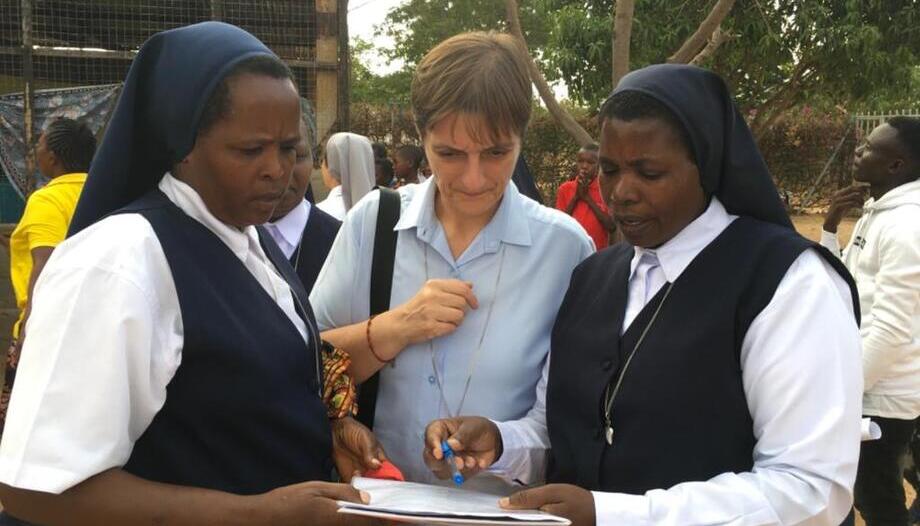Original Text of the article in Spanish here
The number of the organizations belonging to the International Union of Superiors General (UISG) is more global than ever - nineteen hundred women's congregations of diocesan and pontifical right, spread over all the continents: from Europe to Asia, from the Americas to Oceania.
Since last May, this worldwide network of sisters has had a new president: Nadia Coppa, who belongs to the religious Institute of the Adorers of the Blood of Christ. 'My election was a surprise,' she says. But from the beginning I put myself at the service of the objectives of the UISG. For example, to favor the connection between the many different congregations, to share a common vision of consecrated life to be found in different cultural contexts and to promote formation activities and to foster life.'
These goals she will not pursue alone, but with the shared efforts of a good team. 'I will be supported by an executive council of women who have a rich missionary and ecclesial experience and that encourages me to adopt an attitude of listening, openness and availability,' the nun added.
What future challenges for the UISG do you foresee?
- First of all, we need to continue developing networks among the congregations. The process has been going on for some time but, during our last plenary assembly, we felt we ought to strengthen formation activities and to exchange ideas and projects, especially on behalf of the most vulnerable. Another challenge will be to make consecrated women more visible in the Church, and also that they participate at the decision-making round tables. This will result in making the Church a sign that broadens its vision by a sharing of charisms. And then there are the new challenges that come from a divided and globalized world, in which our presence should certainly be a presence for communion, for listening and for promoting the care and protection of life. It's a truly fascinating future.
With regard to the role of women in the Church, what specific contribution can the UISG make?
- We must encourage reflection on the role of women in the Church. Obviously, the UISG operates in a different cultural context in every nation. And so we need to raise awareness of the value of women's dignity and explain how women promote the transformation of the world and the Church. Pope Francis' proposals about women participating in ecclesial life are truly significant. We must continue this process with a welcoming spirit, with dialogue and common discernment.
Is there any part of the world that currently attracts your attention?
- My attention, and that of the UISG, is currently focused on the religious congregations of women who live in Ukraine, Russia and the countries of the East, in order to support them through specific deeds of solidarity. Today, the presence of our sisters in these territories is prophetic, because they share their lives with people who are living in a time of great uncertainty. Our gaze is also directed towards those African nations whose ecclesial dimensions still need a synodal spirit.
So, one of the dimensions of your governance is that of listening?
- For sure. Together with the governing council of the UISG, we must begin to meet and work out a common vision in the light of the changes that have taken place in recent years. Listening is the fundamental attitude if we're to respond to the cry of the poor and of the earth.
What contribution is the UISG making to the synodal journey?
- We've taken significant steps so far. The UISG has cooperated with the Union of Superiors General (USG), to guarantee our active participation and sharing for the Holy See. And we want to continue fostering similar moments among the different congregations, by journeying and thinking together.
Was there a group reflection on the problem of the lack of vocations that affects most Western countries?
- The number of vocations and the rising average age of sisters within our congregations are two areas of vulnerability that we discussed at the last plenary assembly. But at the same time we're very confident because the new vocations, though small in number, are highly motivated; they're available for mission and for living the Gospel in a radical way. Still, it's true, we need to reflect on new paradigms for life in community and on new ways for presenting women's consecrated life.












